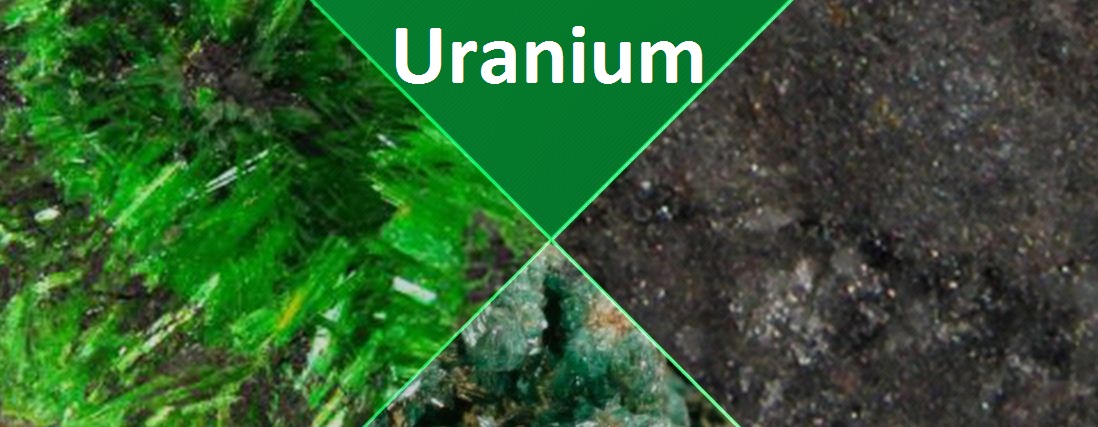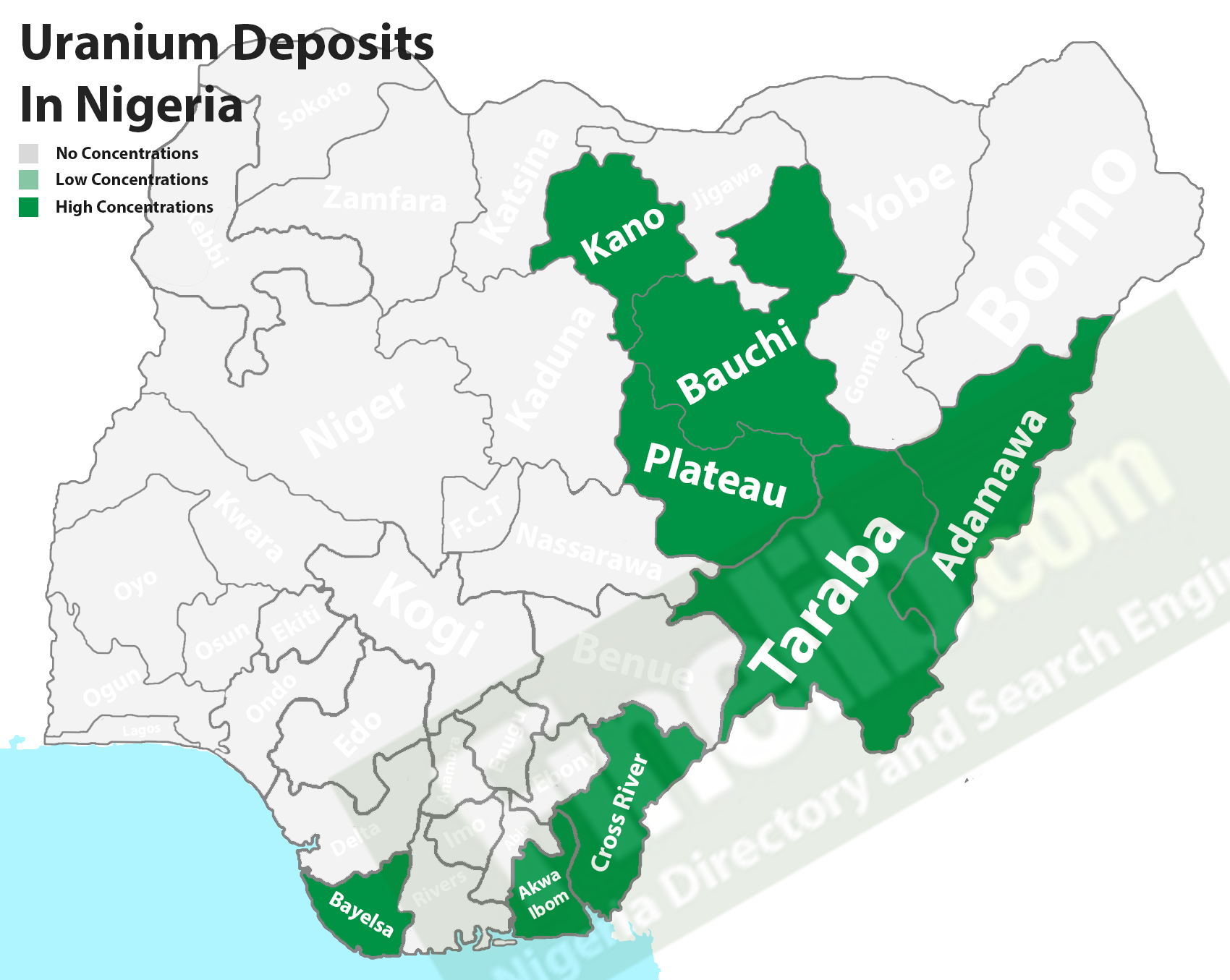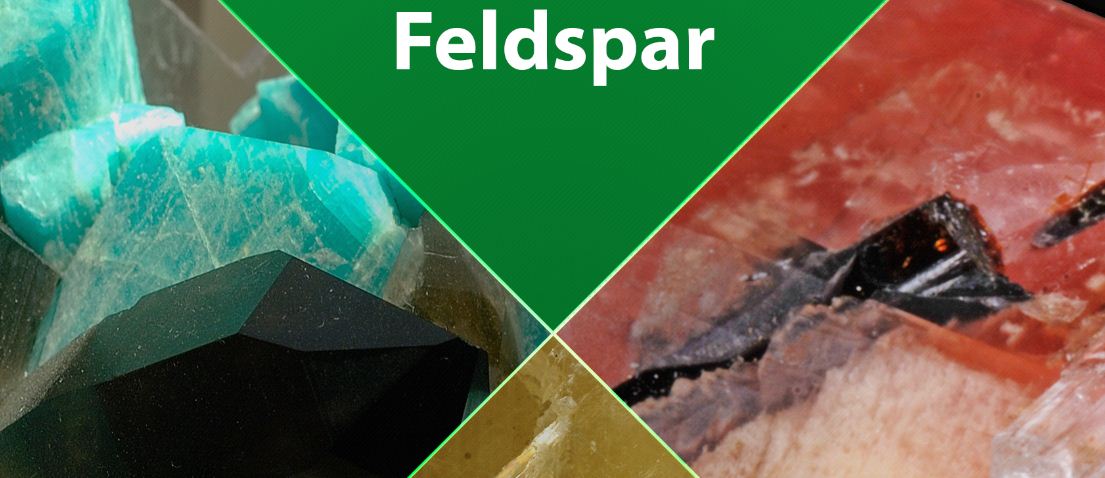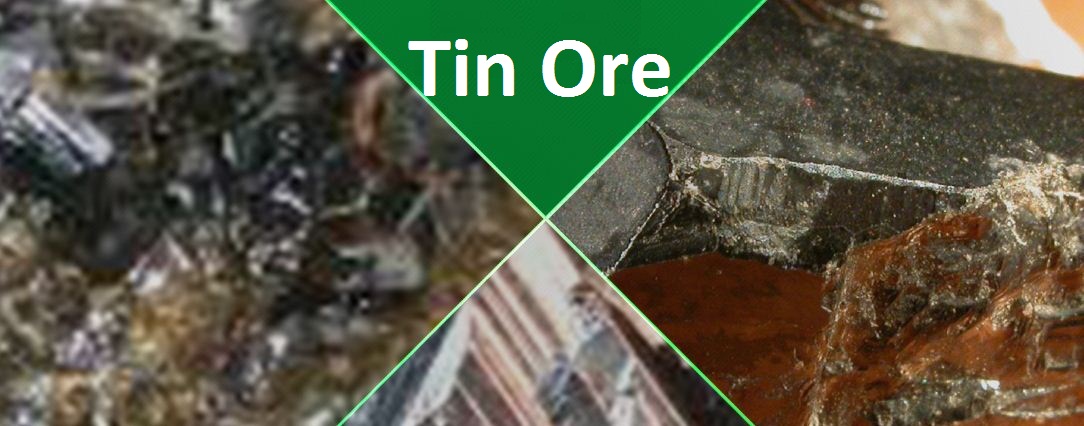Uranium (U) Solid Minerals Endowed States In Nigeria

Uranium is one of the natural resources in Nigeria, it is a predominant mineral that can be found in Africa, and while some countries like South Africa, Namibia, and even Niger have been into the proper mining of this mineral, it has remained untapped in Nigeria and some other Africa countries where it is deposited.
World beneficial uranium can be found in the below-listed states in Nigeria and it places the nation's economy in a vantage position for further growth. The Nigerian states with Uranium deposits include Akwa Ibom, Bayelsa, Cross River, Adamawa, Taraba, Plateau, Bauchi, and Kano states.

Uranium has a symbol of U; a melting point of 1,132 °C and a boiling point of 4,131 °C. It is a radioactive, silvery metal located in the actinide series of the periodic table.
In terms of atomic weight, it is the second-highest after plutonium; In terms of abundance, it is the 51st most abundant element in the earth's crust.
It is found in large quantities naturally (in low levels within all rock, soil, and water) and in combination with other elements. Uraninite is one of the uranium-bearing minerals from which uranium can be conveniently extracted in large quantities.
Uranium is one of the natural mineral resources which can be found in Nigeria, West Africa, it can help in the improvement of the economy when harness using the right process and equipment or it can cause an adverse effect on the lives of the people living near and far the areas of this mineral deposition or mines.
Uranium is not quite harmful as some few deposits of it might be in our foods like root vegetables and water but it is generally regarded as been hazardous to health when there is a radioactive reaction which causes decay, because of its droplets in the air we breathe, is inhaled over a long time can cause cancer and even kidney diseases.
Uses of uranium
- It can be used as ballast for ships and counterweights for aircraft because of it is a dense metal.
- It’s used as a nuclear fuel for electricity generation in nuclear power stations.
- It is also used to make trans-uranium.
- Uranium is also used by the military to power nuclear submarines, in nuclear weapons, ammunition, and armor.




